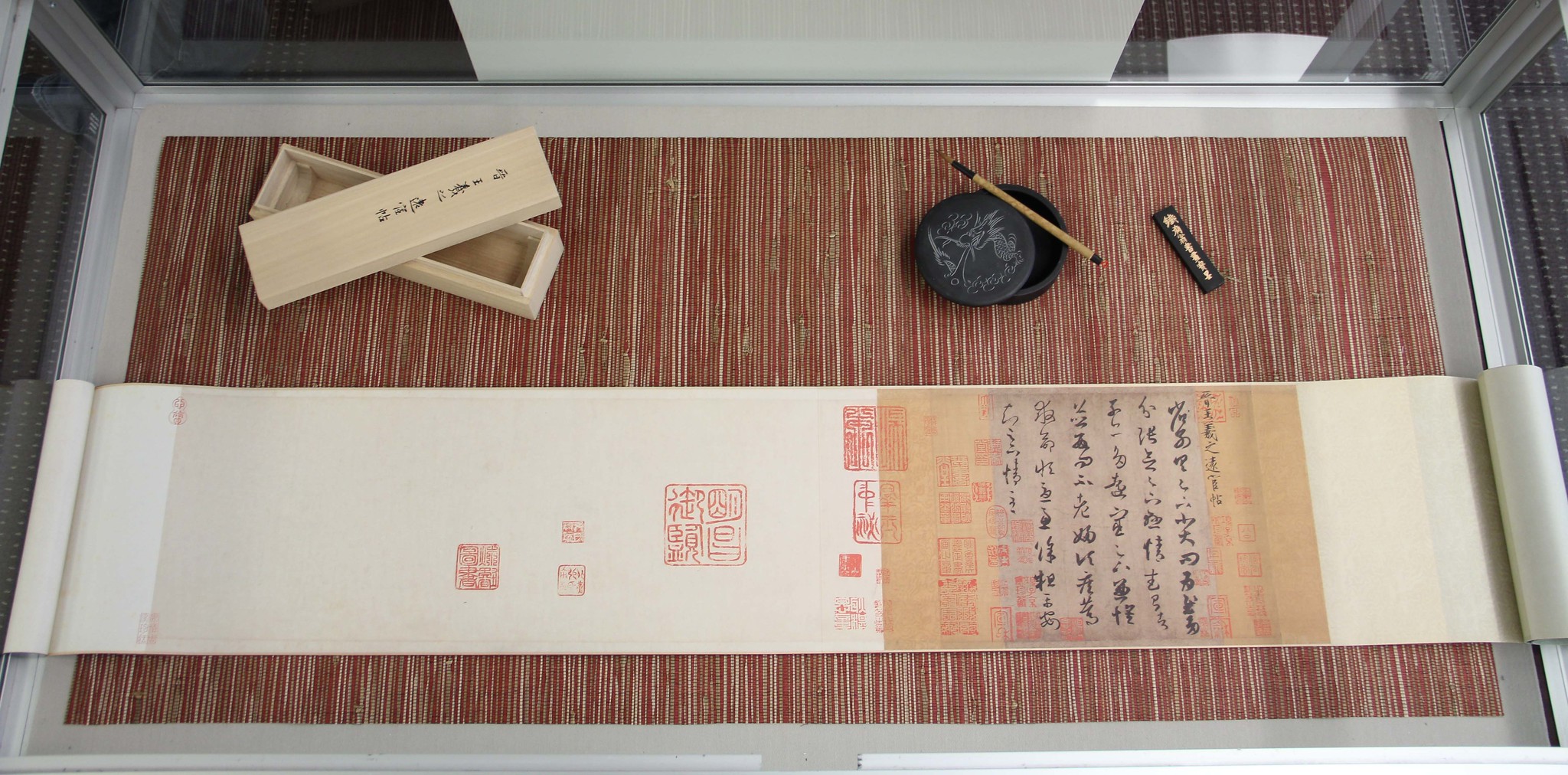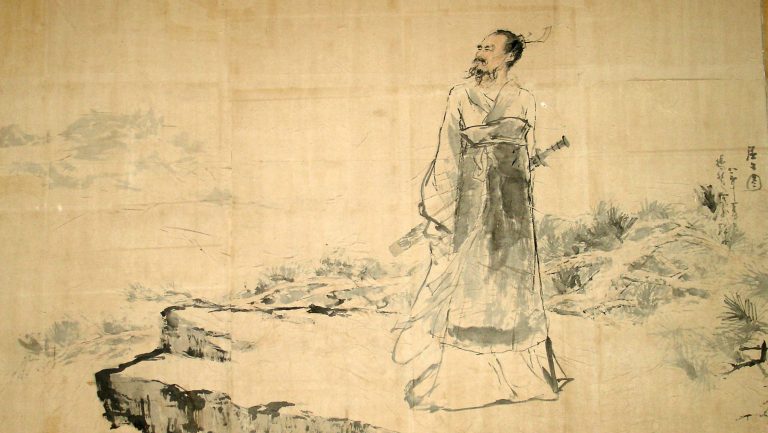Every year, on the fifth day on the fifth lunar month in the traditional Chinese calendar, people celebrate the Dragon Boat Festival, called Duan Wu (端午節). Falling on June 14 in the Western calendar this year, the festival is held in respect of Qu Yuan (340–278 B.C.), an ancient minister — and China’s first known poet — who gave his all in serving his country, even when the king himself would not listen to reason.
Exiled and ignored by the elites, the patriot drowned himself in the depths of the Miluo River as a final protest upon hearing that his nation’s capital had been occupied by a foreign invader. Hearing that Qu Yuan had died, the local people rushed to the river, throwing in leaf-wrapped sticky rice balls so that the fish might be distracted from eating the body of the respected statesman. Some rode dragon boats out onto the Miluo, searching everywhere in hopes they could recover Qu Yuan and give him a proper burial.
Though his life and career were filled with tragedy, Qu Yuan has a unique place in Chinese history and culture. Two thousand years later, the colorful and decorative dragon boats are a regular feature of waterborne racing events. Chinese people continue to make zongzi, the sticky rice balls wrapped in large bamboo leaves, as a special dish for the festival.
Qu Yuan serves his nation in a time of crisis
Poetry is an integral part of Chinese, which is written using characters that convey meaning and feeling, rather than sound. In the past, most educated people could write poetry, using it not merely as a form of art, but even to express political opinions or make arguments.
Even though many poems and lyrics survive from before Qu Yuan’s time, the verses he wrote are the first in Chinese history for which an author can be determined. His writing is melancholy and heavy with emotional, abstract musings.
Success
You are now signed up for our newsletter
Success
Check your email to complete sign up
Qu Yuan lived in the late Warring States Era (475–221 B.C.), when multiple kingdoms vied for control of China. He served as a top minister in his home state of Chu, a large country to the south.
Chu was a formidable power, but it faced grave danger: to the northwest, the Kingdom of Qin was on the rise. By the end of the 4th century B.C, Qin had conquered the smaller countries between it and Chu, giving the two kingdoms a long border.
Fearing for their security, the other major Chinese kingdoms agreed to join hands to resist Qin’s aggression. But Qin’s strength did not come from military force alone: diplomats and agents hired by Qin travelled throughout China to cut deals with the other states. This weakened the anti-Qin alliance.
King Huai, ruler of Chu, did not understand Qin’s strategy nor the ruses Qin would use. Believing Qin wanted peace, the king and his advisers entered negotiations and were cheated several times. Even when King Huai sent troops to punish Qin for its trickery, it was also part of the enemy plan, since Qin had calculated that King Huai would attack, and made preparations in advance to ambush the Chu army. As a result, Chu was defeated in several battles and lost even more land.
In the year 299 B.C. the king of Qin requested a meeting with King Huai at the border, claiming he wanted to discuss a strategic partnership with Chu.
Sober among drunks: Qu Yuan’s sacrifice
The atmosphere in the Chu court was divided. Some officials believed King Huai should go: if the king refused, Qin could see it as an insult and start a new war, which Chu could not afford.
Qu Yuan was opposed to the meeting, which would only damage Chu State’s honor even further. However, King Huai was desperate for an easy way out of his predicament. To make matters worse, many of the king’s advisors feared that they would not be able to maintain their luxurious lifestyles if Chu had to stand its ground and fight. Additionally, some had taken Qin princesses as wives, coloring their perceptions of the enemy.
In the end, King Huai went to meet the Qin king, who promptly had him arrested and demanded that he give up another slice of land if he wanted to return to Chu. King Huai knew he had been thoroughly deceived, but it was too late. He refused to cooperate, and died in prison.
The new king of Chu did not learn from his father’s lesson. Moreover, the same ministers who had convinced King Huai to appease Qin were still in office.
Sadly, Qu Yuan’s powers were limited. His job was to maintain the ancient rites for worshiping the ancestors of the Chu royal family, and teach young nobles. He offered his advice time and again, but it fell on deaf ears, as the entire court seemed to forget the threat facing Chu. In the end, the new king grew tired of Qu’s droning, and banished him to his hometown.

It was in exile that Qu Yuan wrote most of his works. Unlike the poems collected hundreds of years earlier by Confucius, Qu Yuan’s writing uses complex poetic meter and sentences of varying length. His poems are very long — his most famous piece, “Sorrow at Departing” (離騷), has 373 verses. The rich detail and scenes in his work are atypical for the writing of the period, and give historians many insights into the culture that existed in China at the time, including which gods they worshipped and their various traditions.
Once, when walking along a river, Qu Yuan encountered a fisherman, who recognized him as the minister of rites.
“Why are you here?” he asked. “The whole world is confused, and I alone am clear. Everyone is drunk, and I alone am sober,” Qu Yuan lamented.
“Since they’re drunk, why don’t you get drunk along with them and enjoy life?” the fisherman asked again.
Qu Yuan said, “After bathing, a man will want to wear clean clothes. After washing his hair, he’ll want to bat the dust from his hat.”
The former minister waited 14 years, hoping that his nation’s fate would turn for the better. In 278 B.C., Qin sent its best general to lead troops against Chu. The Qin army sacked Chu’s capital city, forcing the royal family and the entire court to relocate. Chu lost much of its core territory, along with the little chance it had to reverse the losses it sustained over the previous decades.
Seeing that Chu was finished, Qu Yuan took his own life by sinking into the Miluo River. Though shamed and ignored by his peers, the ordinary people of Chu respected him greatly, ensuring that his name would be left to the future. More than 100 years later, the Grand Historian Sima Qian described Qu Yuan as a man of unique honor, who remained loyal to his king and country until the end.
The Dragon Boat Festival commemorates a man who died for a cause most Chinese today have no connection with. Qin State eventually conquered the six remaining kingdoms, unifying China under the First Emperor. But Qu Yuan inspired generations of poets and scholars, who strived to remember and follow his example, and the traditions of the festival itself have immortalized him in Chinese culture.













